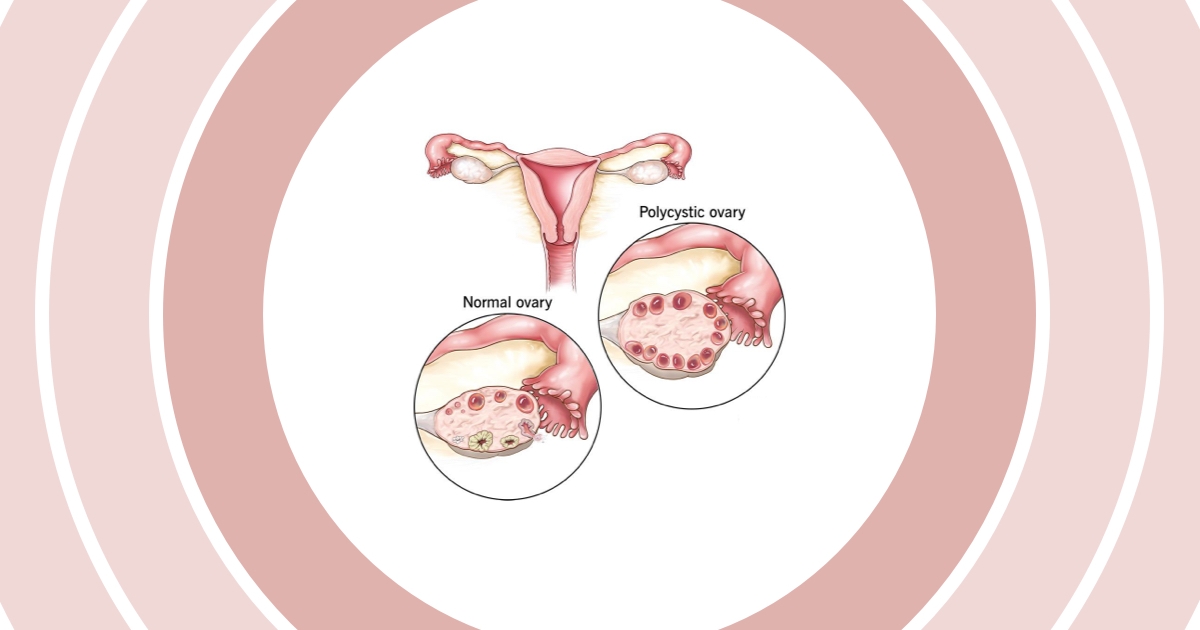What Is Polycystic Ovary Syndrome (PCOS)?
Polycystic Ovary Syndrome (PCOS) is a common endocrine disorder affecting approximately 5–10% of women of reproductive age. It can lead to irregular menstrual cycles, infertility, and various metabolic challenges. The term “polycystic” refers to the presence of multiple small cysts in the ovaries, resulting from the failure of egg cells to mature and ovulate regularly. PCOS can impact not only menstrual health but also long-term cardiovascular and metabolic well-being.
Typical symptoms of PCOS include irregular or absent periods, ovulation disorders, excess hair growth (hirsutism), and acne. These symptoms often become more pronounced in women who are overweight or obese.
The Link Between PCOS and Insulin Resistance
Insulin resistance plays a central role in the development of PCOS. Insulin is a hormone that regulates blood sugar levels, and more than half of women with PCOS have a reduced response to it. As a result, blood sugar regulation is disrupted, appetite increases, and abdominal fat accumulates — all of which raise the risk of type 2 diabetes over time.
Reducing insulin resistance is a key goal in PCOS treatment. Therefore, lifestyle modification and healthy nutrition are essential parts of the care plan.
Long-Term Health Risks of PCOS
Without proper management, PCOS can lead to more than just irregular cycles. Long-term risks include cardiovascular disease, hypertension, increased LDL (“bad”) cholesterol, type 2 diabetes, and metabolic syndrome. Early-onset weight gain and insulin resistance further elevate these risks.
Research shows that women with PCOS have a significantly higher rate of metabolic syndrome compared to their peers. This underscores the importance of early diagnosis and lifestyle changes.
Why Weight Management Matters in PCOS
Weight loss is one of the most effective strategies for managing PCOS. Losing as little as 5% of body weight can improve insulin sensitivity, regulate menstrual cycles, and enhance fertility.
An ideal nutritional plan aims for a gradual and sustainable weight loss of 0.5–1 kg per week. Crash diets or extreme restrictions often backfire, disrupting metabolism and leading to weight regain. Instead, individualized and long-term nutrition programs are recommended. Weight loss not only improves menstruation but also enhances ovarian function, skin health, and metabolic balance.
Nutrition Guidelines for Managing PCOS
Dietary therapy is the cornerstone of PCOS management. Several nutritional strategies can help support hormone and metabolic balance:
- Lower the glycemic load: Avoid foods with high glycemic index that spike blood sugar and insulin demand. Choose whole grains (like oats, rye, bulgur), legumes (like lentils and kidney beans), and fresh vegetables.
- Increase fiber intake: Dietary fiber promotes fullness, regulates blood sugar, and supports digestive health. Include whole grains, legumes, raw vegetables, and fresh fruits in your daily meals.
- Establish regular meal patterns: Aim for 3 main meals and 2–3 healthy snacks per day to stabilize energy levels and support metabolic function. Good snack choices include unsalted yogurt, a handful of raw nuts, whole grain crackers, or fresh fruit.
- Use healthy fats: Avoid saturated and trans fats. Instead, include omega-3 and omega-9 rich foods such as salmon, sardines, walnuts, flaxseed, and olive oil.
The Role of Exercise in PCOS Management
Regular physical activity is crucial in managing PCOS. Aim for 45–60 minutes of brisk walking or cardio workouts, 3–4 times a week. Exercise enhances insulin sensitivity, boosts metabolism, reduces abdominal fat, improves ovulation, and supports overall well-being.
In short, exercise is an integral part of PCOS care.
When Is Medication Necessary?
If blood sugar imbalance or ovulation issues persist despite lifestyle changes, medical treatment may be recommended. Medications typically aim to enhance insulin sensitivity or stimulate ovulation, and should always be used under medical supervision.
Lifestyle Medicine: Your Strongest Ally Against PCOS
Managing PCOS requires patience and consistency — but the results are worth it. With balanced nutrition, regular movement, weight control, and targeted medical support, you can significantly improve your quality of life and increase your chances of conception.

